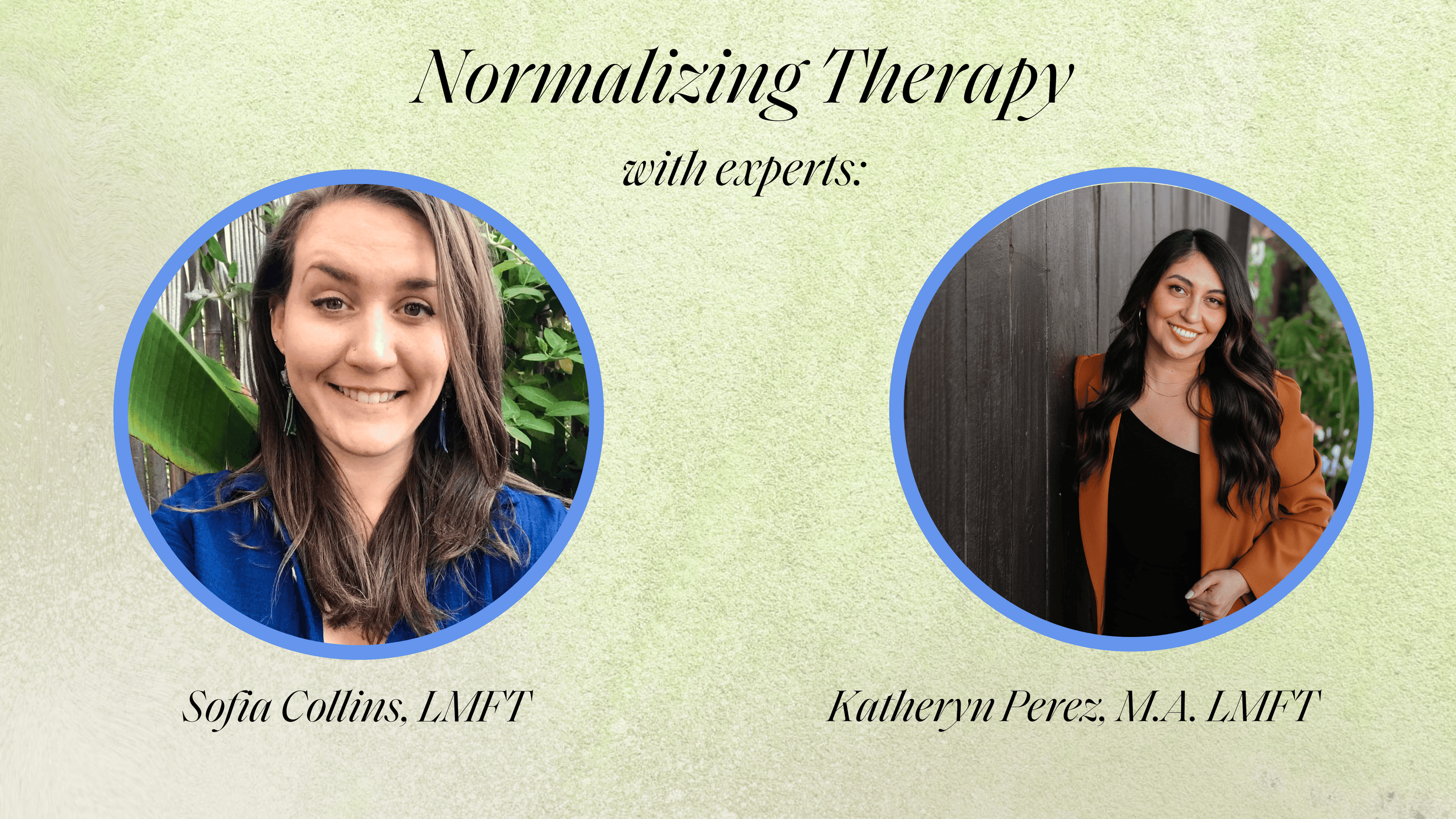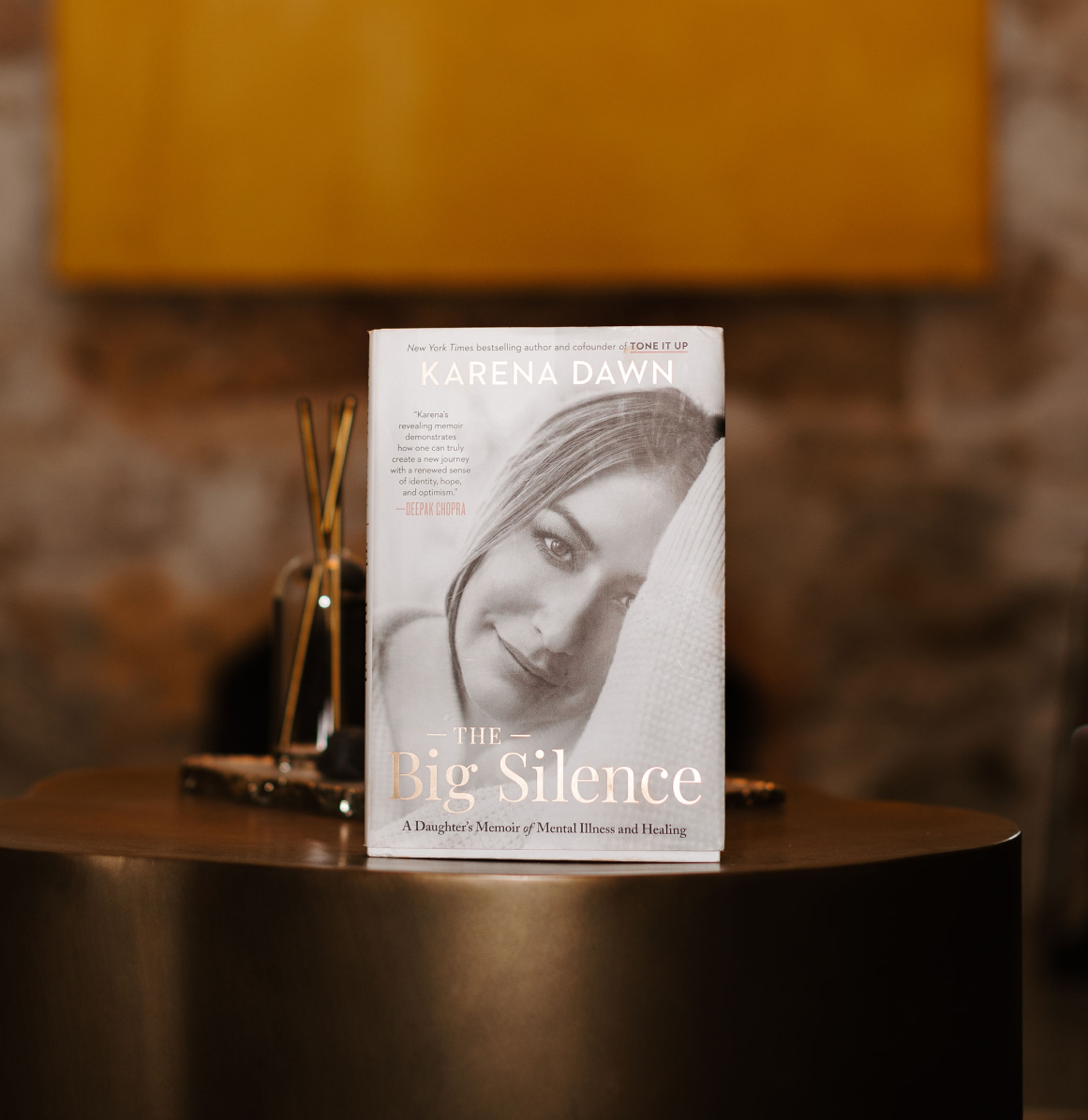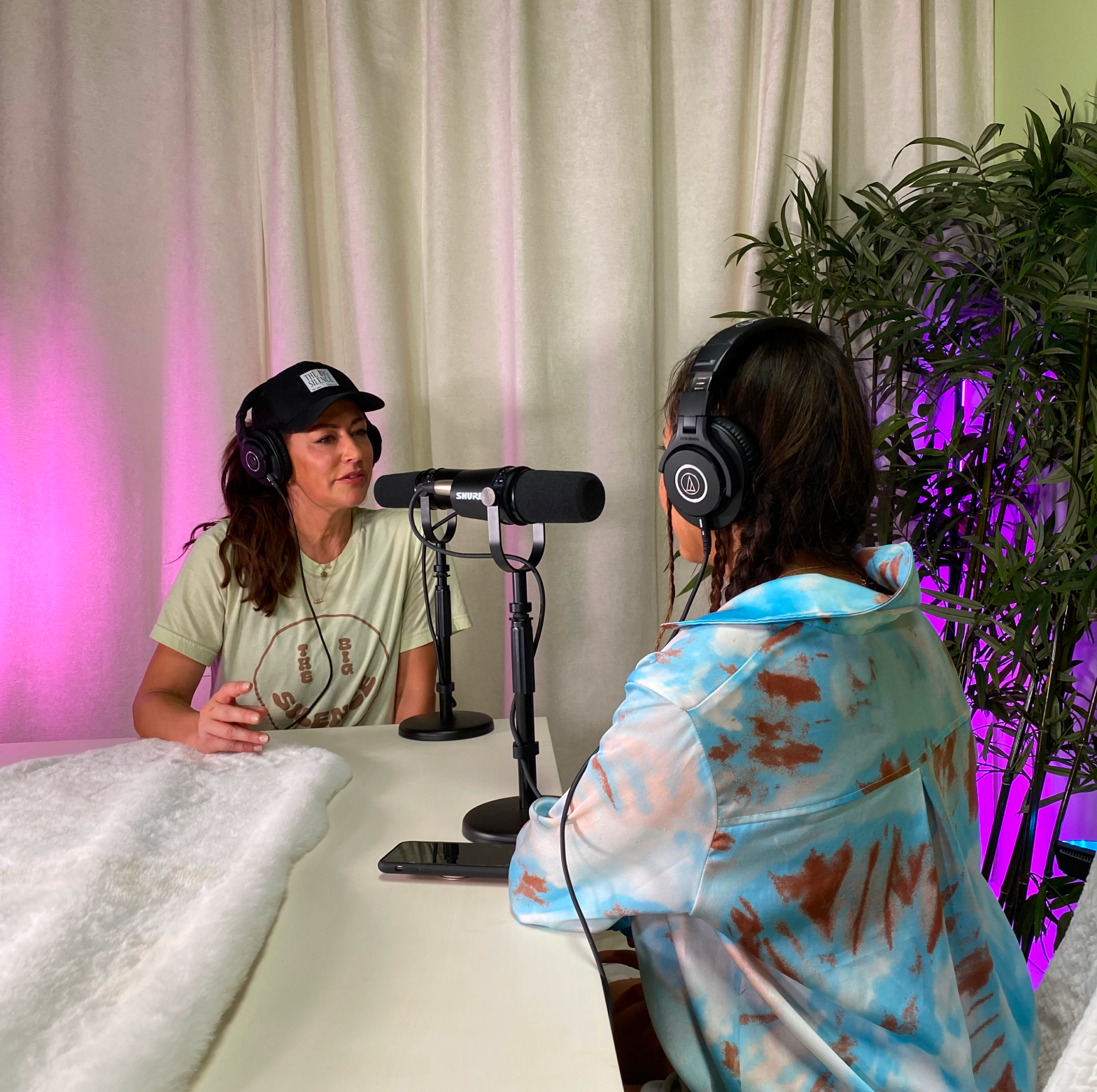Recently on The Big Silence Podcast, we had an in-depth conversation with Ashley Greene Khoury and Olivia Khoury about period pain and mental health. Our chat was incredible (listen to the full episode here), and one of the most surprising parts came when the conversation turned to therapy. Ashley shared that she has never seen a therapist, and that part of her is afraid to start.
Ashley is not alone in this. The idea of therapy can be scary and intimidating if you’ve never tried it — especially because there is still a major stigma attached to it. At The Big Silence, our mission is to erase stigma and normalize conversations around mental health, so let’s talk about therapy!
Since the pandemic, more and more people have been turning to therapy as a way to care for their mental health. A recent study found that more than one out of every six Americans started therapy for the first time in 2020.
Still, misconceptions persist and keep people from seeking care. “Even though there has been a recent shift in how we view therapy, many people are still struggling in silence due to the negative stigma attached to mental health,” says Katheryn Perez, MA, LMFT, a licensed marriage and family therapist based in California.
This is especially true when it comes to our own mental health. “Even though there’s a growing openness toward the idea of mental health online and on social media, there is a big difference between the idea and the reality. People are more compassionate toward others getting help, but when it’s for themselves, that’s where I see resistance time and time again,” says licensed marriage and family therapist Sofia Collins, MS, LMFT. “People have fear or shame around the idea of personally asking for help, and I don’t think people know what help could look like.”
To help dispel that fear and confusion, we asked Perez and Collins to share what therapy is really like — and how powerful, approachable, and transformative it can be.
Here are 11 things they want you to know:
Seeking therapy is not a sign of weakness
In the study we mentioned, a shocking 47% of respondents said they viewed therapy as a “form of weakness.” First and foremost, this is not true. “The most important thing to know is that asking for help is a sign of strength and courage, not weakness,” Perez says.
As humans, we are not meant to have all the answers. “There is a misconception that we are supposed to know how to take care of ourselves intrinsically,” says Collins. “We think we are supposed to know how to navigate our own nervous systems, but our bodies aren't built for the constant onslaught of news and stimuli in today’s world.”
Therapy is simply a tool to help us all process what’s happening in our own lives and in the collective consciousness. We don’t need to do it alone.
Going to therapy doesn’t mean there’s something “wrong” with you
“There’s a myth that ‘therapy is for crazy people,’” Perez says, which further stigmatizes both therapy and mental health in general. The truth is that anyone can benefit from therapy. No matter who you are or what you’re going through, “therapy can be an effective tool to understand our own behaviors, relationship patterns, communication skills, and emotions.”
Therapy is not a last resort
Some people believe talking to a therapist is like going to an emergency room — like it’s a last resort for dire circumstances. “You do not have to wait for something ‘bad’ or traumatic to happen in your life in order to start therapy,” Perez says.
Ideally, we can shift this mindset so that therapy is seen as preventive care, similar to routine physicals. “Think of it like going to a dentist regularly,” says Collins. “We all brush our teeth, but we also go to a professional to make sure things are taken care of and that we don’t miss anything. Therapy can be that throughout our lives and not just in a moment of suffering.”
You can start therapy at any time, for any reason
So if you’re not waiting for something “bad” to happen to start therapy, when should you start? Both experts agree that anytime is a great time. “The earlier the better,” says Collins. If you are going through any type of life transition, starting a new job, beginning or ending a relationship or friendship, noticing a loved one going through something, or feeling stuck or stagnant in any area of your life, a therapist can support you to process what you’re going through.
Collins adds, “If at any point you want to slow things down, go deeper, and be more intentional in your life, that is a beautiful moment to pause and reach out to a therapist.”
Therapy is a human process
“Sometimes people think therapy is like medicine where things are done behind closed doors, there is a lot of fancy jargon, and there are power dynamics like people in lab coats,” Collins says. “But it’s a human process and it can be much more approachable if we give it the chance.”
Perez finds that new clients are often surprised at how naturally they connect with a therapist. “I often hear, ‘I never thought that a therapist could understand me,’” she says. “People forget that therapists are humans too. Many of us are in this field because we have experienced similar things as our clients.”
The first few sessions may feel unfamiliar or uncomfortable, but “there is a part of us deep down that is very familiar with the process — that is the humanness of what it is to be in therapy. To be truly seen and heard by another person,” Collins says. “People are blown away by how powerful that is!”
Therapy is a safe space
With the right therapist, you will have a safe, confidential, and non-judgemental place to explore and release emotions. “I like to describe therapy as a container, a place where you can leave everything and anything that you have been carrying on your own,” Perez explains. “The therapy space becomes a container for the heaviness, emotional distress, and/or past damaging behaviors you no longer want to continue engaging in or carrying. The container serves as a safe place to store what no longer serves you.”
You are in the driver’s seat of your experience
Another roadblock to therapy is a fear of giving up control to someone else. In reality, “therapy is not about someone telling you what to do. That is actually the complete opposite of what we do,” says Perez. “We help clients explore their own behaviors and emotions while empowering them to make the best decisions for themselves.”
Collins agrees that mental health is a collaborative process where you are in control. “I tell my clients to think of it like the process of driving a car,” she says. “You are the one in the driver’s seat. You dictate where we go. You determine how quickly. I’m just in the passenger seat with an extra break. I’ll encourage us to slow down a bit and be more intentional.”
Your friends are not your therapists
While your friends and family play a beautiful role in your life, you’ll get something completely different from a trained professional. Both are incredibly valuable in their own ways. “With loved ones, we may worry about what the conversation will do to the other person and maybe have to take care of them afterward as opposed to devoting time to ourselves,” Collins says. “Therapists are unbiased, and you don’t have to worry about their emotions. They are really there to hold you in that moment.”
There are many forms of therapy
When people hear the word “therapy,” many automatically envision sitting on a couch and talking, but there are many types of therapy. For example, walk and talk therapy where you meet up for a hike or a stroll around the neighborhood, biblio therapy where you and your therapist read and discuss a book together, art therapy, equine therapy, sports and activity-based therapy, etc. “Whatever you’re interested in, there’s a therapy for you,” Collins says. “It’s about any way you can connect with the therapist and yourself and be seen and heard.”
You can “date” around to find your therapist match
“The most important piece about therapy is the relationship between the client and therapist,” explains Collins. You want to find someone who makes you feel comfortable, understood, and safe to express yourself. Just as in dating, you may not find your “perfect match” on the first try.
Collins suggests browsing Psychology Today’s directory of professionals. You can search by zip code, gender, specialties, types of therapies, insurance, price, and more options. You can check out each therapist’s profile and website to get a feel for who they are and what they do. You can also find more resources to search for a therapist on our Resources page.
Many therapists offer free consultations so you can get to know each other and discuss what working together might look like. “Most therapists are really warm, loving people,” Collins says. “It’s not just about the service we provide; it’s who we are and how comfortable you feel.”
If you have a consult or even a few sessions with a therapist and it doesn’t feel like the right fit, you should absolutely not be afraid to tell the therapist and seek another option. This is part of the process and the therapist will not be offended. As Collins says, “we would not even bat an eyelash if someone says it’s not a fit.”
You deserve to take the time for yourself
Last but certainly not least, some people put off therapy because deep down they feel they are not deserving of focusing on themselves. “We’re all so busy that to give yourself just an hour that's protected is so hard,” Collins says.
We want you to know that caring for your mental health is just as essential as caring for your physical health. It is not selfish to prioritize your mental wellbeing — it enriches not only your life but the life of everyone around you. You are worthy of that time and care!
Want to learn more about these experts?
You can find Sofia Collins’ website here. If you are in the San Francisco area and are looking for a LGBTQIA-safe and affordable therapy office, Sofia recommends SF Therapy Collective and its non-profit sister company Queer Lifespace.
You can find Katheryn Perez’s website here and her Instagram here. She will soon open a virtual group practice, Perez Family Therapy, Inc., focused on providing mental health services to BIPOC individuals.










